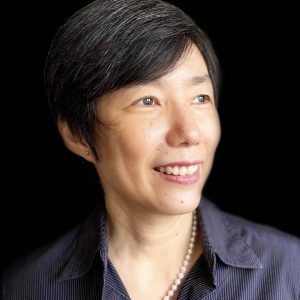Staff Page
Sharon Adeline Bong

- Research Departments・Position
- Social Coexistence
Visiting Research Scholar - Area
- Gender and Sexuality Studies, Religious Studies and Theology, Southeast Asian Studies, Postcolonial Studies, Qualitative Research
- Research Interests / Keywords
- Asian-feminist, queer theologies, ecologies
- Contact
- sharon.bong@monash.edu
Sharon Adeline Bong
Overview
Queer ecofeminism in Southeast Asia
My book project at CSEAS focuses on spiritual/cultural ecofeminism and explores its understandings and manifestations in the everyday practices of those who live in a just and sustainable manner within an ethnically, culturally, and religiously diverse Southeast Asian milieu. At the heart of these practices is a profound sense of connectivity lived at the intersection of gender, ecology, and religion.
The project is developed from my recent study of ecology and Christian theology from a critical feminist lens, which I applied to Pope Francis’ encyclical Laudato Si: On Care for our Common Home. Despite the current Pope’s ecological vision of humanity’s culpability yet commitment to the ecological crisis, I argue that Christian eco-theology as articulated in Laudato Si is founded on an androcentric and anthropocentric worldview that privileges men over women and humans over nature.
I first propose a de-centering of the human as a theological ethic for ecological sustainability. Second, I explore queer ecofeminism, which recognizes the parallelism of ecological biodiversity and gender diversity (of, for example, non-binary and plural sexual orientations, gender identities, gender expressions, and sex characteristics). By interrogating what passes as ‘natural’ and its constructed antithesis, ‘unnatural’, queer ecofeminism renders identities incoherent, unstable, and fluid. The tropes of queers and cyborgs (principally transhumans and posthumans) are emblematic of such de-naturalizations. Strands of queer ecofeminism include (but are not limited to): feminist veganism, vegetarianism, and animal rights. I hope to add to exciting and emerging scholarship on the cultural and spiritual resources of (queer) ecofeminism from Southeast Asia by drawing from transformative Confucian, Buddhist, Christian, and Muslim eco-theologies.
The project is developed from my recent study of ecology and Christian theology from a critical feminist lens, which I applied to Pope Francis’ encyclical Laudato Si: On Care for our Common Home. Despite the current Pope’s ecological vision of humanity’s culpability yet commitment to the ecological crisis, I argue that Christian eco-theology as articulated in Laudato Si is founded on an androcentric and anthropocentric worldview that privileges men over women and humans over nature.
I first propose a de-centering of the human as a theological ethic for ecological sustainability. Second, I explore queer ecofeminism, which recognizes the parallelism of ecological biodiversity and gender diversity (of, for example, non-binary and plural sexual orientations, gender identities, gender expressions, and sex characteristics). By interrogating what passes as ‘natural’ and its constructed antithesis, ‘unnatural’, queer ecofeminism renders identities incoherent, unstable, and fluid. The tropes of queers and cyborgs (principally transhumans and posthumans) are emblematic of such de-naturalizations. Strands of queer ecofeminism include (but are not limited to): feminist veganism, vegetarianism, and animal rights. I hope to add to exciting and emerging scholarship on the cultural and spiritual resources of (queer) ecofeminism from Southeast Asia by drawing from transformative Confucian, Buddhist, Christian, and Muslim eco-theologies.
